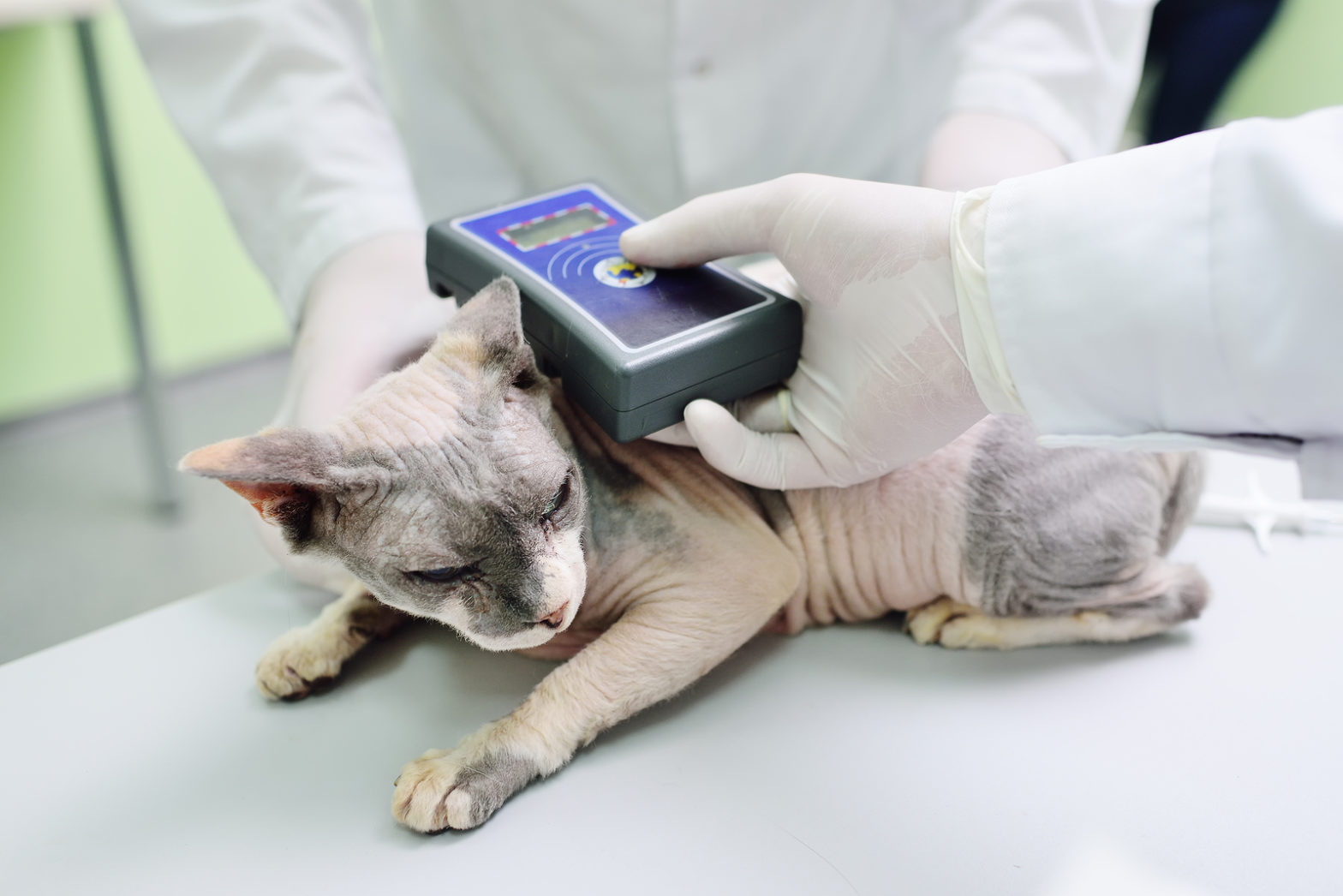My childhood cat, Pretzel Popcorn Reeder, once disappeared after a massive earthquake shook Southern California. Happily, a few days later, she reappeared in our backyard.
Because of that experience with Pretzel, I always microchip my pets for “just in case” scenarios. As you probably know, a microchip is a tiny device – about the size of a grain of rice – implanted by veterinarians between a pet’s shoulder blades. Each microchip has an ID number that the owner can share with a microchip registry along with their contact information.
“When a stray animal is found, one of the very first things staff at veterinary hospitals and animal shelters do is scan for a microchip, which then shows the unique identification number and the registry with associated contact information for the owner,” says Heather Loenser, DVM, senior veterinary officer for the American Animal Hospital Association (AAHA). “The bottom line is that microchips help provide peace of mind in case a beloved animal goes missing.”
Keep in Touch
Dr. Loenser says AAHA and the American Veterinary Medical Association (AVMA) teamed up to create the annual “Check the Chip Day” to remind pet owners to microchip their pets, and make sure their contact information is current with their microchip registry company.
“The whole goal is to keep pets with their families,” she said.
In recognition of the upcoming Check the Chip Day on August 15, Dr. Loenser shares these top reasons to microchip your pet:
- You’ll improve your chance of being reunited with your pet. “Microchipping your pet dramatically increases your odds of being reunited if he or she goes missing or is stolen. In fact, a study by The Ohio State University found the return-to-owner rate at shelters for microchipped cats was 20 times higher, and 2.5 times greater for microchipped dogs,” she says.
- It’s quick. Microchipping takes less than a minute. If you’re concerned that the injection will be painful, ask your veterinarian to implant the microchip when your pet will be under anesthesia for spay/neuter surgery or a dental cleaning.
- It’s inexpensive. The implant typically costs less than $50 and registration fees are nominal or included in the price of the microchip.
- It helps provide proof of ownership if your pet is stolen.
- You love your pet. “If you love your dog or cat, you should be sure they are microchipped – it’s sort of like a permanent identification tag,” she says.
- Checking the chip can be a positive experience. “Your veterinarian or technician can just wave a scanner over your pet to make sure the microchip is still readable. Just as puppies and kittens benefit from visiting the animal hospital just for treats, attention, and other positive associations – instead of only for an appointment when they’re sick or needing vaccinations – animals at any age have the chance for a positive interaction at the veterinarian that doesn’t involve being poked or prodded.” To prevent fear, anxiety, or stress during the chip check, be sure your pet is distracted with treats, a favorite toy, or something else they like.
Chip Tips
Dr. Loenser hopes animal lovers will take advantage of Check the Chip Day. Though microchips don’t deteriorate and will last the lifetime of a pet, they can occasionally migrate to a different part of the body, so it’s important to make sure the chip is still readable.
She also emphasizes that microchips don’t have a GPS tracking device.
“A microchip is only useful if your contact information is up to date – be sure to list your landline [if you still have one] as well as cell phone numbers and email addresses,” she says. “The more ways to contact you if your pet is found, the better!”
Finally, in addition to microchipping, you should have an ID tag on your pet’s collar.
“Make it as easy as possible for your pet to be returned to you,” she says. “Better safe than sorry, right?”
While there are many different microchip companies and recovery databases, the AAHA Universal Microchip Pet Lookup Tool simplifies things for animal hospitals and rescue organizations by identifying a microchipped pet’s registry. As Dr. Loenser says, “Everyone’s goal is reuniting pets with their families.”
This article was reviewed/edited by board-certified veterinary behaviorist Dr. Kenneth Martin and/or veterinary technician specialist in behavior Debbie Martin, LVT.








